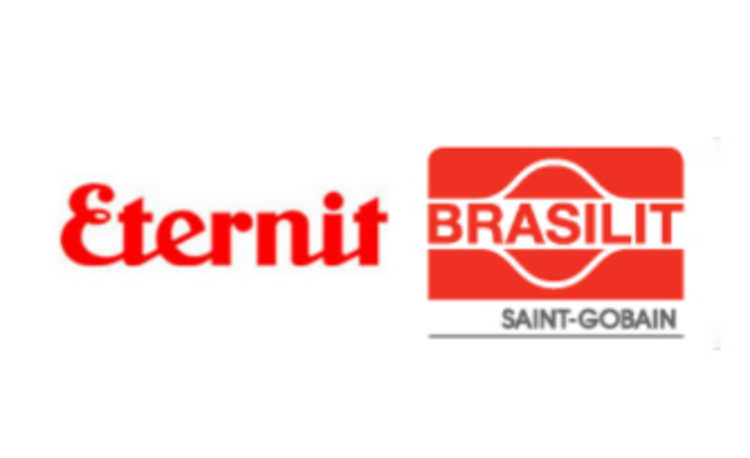Roof tiles and water tanks with or without asbestos?
Brasilit and Eternit, two of the largest manufacturers of roof tiles and water tanks in Brazil, differ when it comes to asbestos

Mineral fiber extracted from asbestos generates controversy. Does the fact that it is carcinogenic make its use unfeasible? Do the products pose a risk to the consumer? And the environment? As it should be, opinions are divided when two of the main manufacturers of roof tiles and water tanks (products that use asbestos fiber as raw material) in Brazil, Brasilit and Eternit, present their positions.
On the one hand, Brasilit, with 75 years of history in Brazil and linked to the multinational Saint-Gobain, abandoned the use of asbestos in its products ten years ago, alleging environmental reasons. On the other hand, Eternit, also with over 70 years of experience on national soil, but with the position of keeping asbestos as part of the raw material of its products, endorsing the evolution of safety in mining companies and in the workplace . THE eCycle contacted the two companies and points out below the justifications indicated by them in relation to the use or lack of asbestos in their products.
Danger
Brasilit's press office affirms that the company has not used asbestos fiber since 2001 due to the possibility of it causing "numerous problems to health, including cancer". When the first discussions about the dangers of asbestos began to gain momentum, the manufacturer decided to bet on new technologies to replace asbestos fiber.
Eternit, on the other hand, is supported by legislation to justify the maintenance of the mineral's use in its products. “The manufacture of products containing chrysotile asbestos is provided for by Federal Law 9,055/95 and Decree 2350/97, which determine and adopt strict measures for the controlled and responsible use of the fiber, resulting in the effective protection of workers' health. In this way, the company practices the safe use of chrysotile asbestos in its work environment, constantly monitoring the air”, says the company's press office, which emphasizes the lack of human contact in the extraction of the mineral.
Alternative
As it chose to change raw material, Brasilit needed to develop a new technology to keep its products in the market, called CRFS (Reinforced Cement for Synthetic Threads), which uses polypropylene threads to reinforce the fiber cement structure. Thus, the company develops a product that maintains durability, but without risks to the environment or workers in the field. Brasilit has a manufacturing plant dedicated only to the production of CRFS (see photo above).

Low use of fiber and amalgam
In products manufactured by Eternit with fiber cement, 10% of the composition is made with asbestos fiber, while 80% is filled with cement and the remainder with reused materials, such as newsprint. According to the company, asbestos is not at risk of coming off the cement and being vacuumed by consumers due to chemical reactions that form an amalgam between the two substances.
discard

Eternit claims that the disposal of its tiles is generally requested for projects where there is a surplus of material, as the high durability (70 years) means that many tiles and water tanks are still in use. The company's press office states that "those who apply the product hardly ever discard it due to its durability." However, there is no guidance for consumers who have, for any reason, their tile or water tank damaged.
The materials used by Brasilit for the composition of its products are completely reusable. The polypropylene that makes up the CRFS is a recyclable plastic and the cement can be reused in up to 25% of a new aggregate for the same purposes. Despite their shorter durability (20 to 30 years), Brasilit compounds do not harm the environment in the same way as asbestos. “Currently Brasilit produces two types of water tanks: conical (made of CRFS without asbestos - marketed only in the North and Northeast) and polyethylene, a non-toxic plastic compound, washable and suitable for drinking water. Both compounds are 100% recyclable”, explains the company's advisors. Despite the possibility of recycling, Brasilit still does not have a recycling program for its materials.Photos: Brasilit Disclosure










